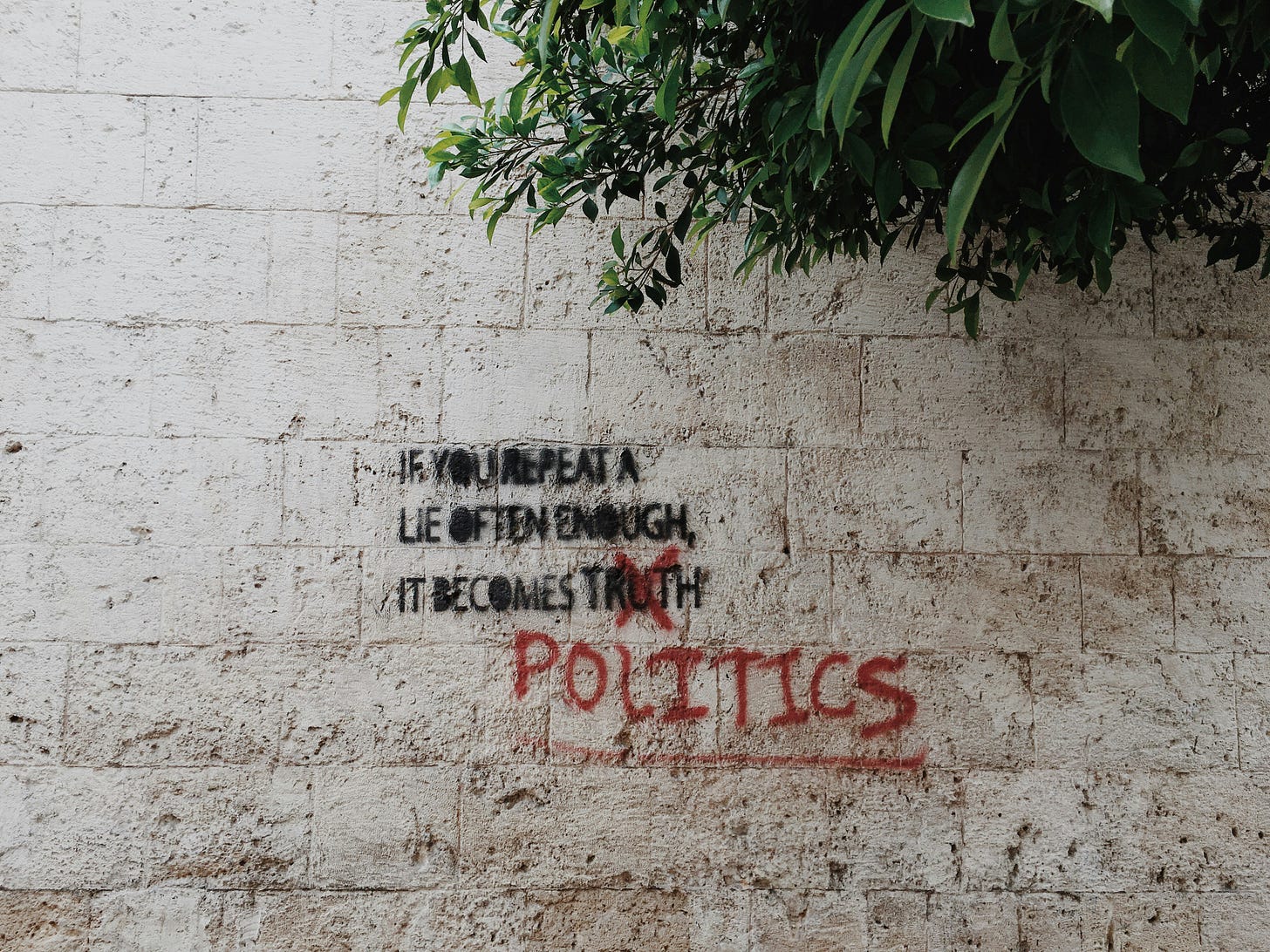
This post is going to be very short: don’t discuss politics at work. Simple as that. Just don’t.
The reason is simple: there is absolutely no upside potential, and only downside risk. As a result, statistically speaking discussing politics at work is just a bad decision. Let’s break down why through a few scenarios.
Imagine that you start probing where your team or organization is located politically. One outcome is that you discover the entire team shares the same political views. If that is the case, there is no upside in talking about politics. All you get is an echo chamber that does not add any value. Everyone is just reinforcing their pre-existing beliefs. So what’s the point? This outcome is not uncommon because certain industries skew heavily liberal or conservative. For example, Entertainment and Big Tech are more liberal, while Oil and Gas, Agriculture, and Mining are more conservative.
Now, let’s say instead you discover that there is division. The delusion of the proponents of talking politics at work is that they think they can shift someone’s political stance just through discussion. It turns out there is quite a bit of research showing that political beliefs are often deeply intertwined with personal identity. You can talk someone to death about your political views and still not move their opinion one inch. So if one side is not going to convince the other, there are two possible outcomes.
If your team is split roughly 50/50, you end up with factions that create a toxic work environment, harming team cohesion and productivity. If the split is more like 90/10, you risk alienating that small minority, making them feel isolated and out of place. In both cases: zero upside, pure downside.
In 2020, Coinbase’s CEO, Brian Armstrong, rolled out a policy that discouraged political discussions at work. The idea was to keep everyone focused on the company’s core mission and avoid the distractions and tensions that political debates can bring. This policy sparked a lot of drama and backlash, and some employees left the company. Shortly after, in 2021, HEY introduced a similar policy to keep societal and political discussions out of the workplace. This decision also caused a stir, and a significant number of employees chose to leave.
In hindsight, they were right, and simply ahead of the curve. The age of unrest, which peaked in the 2010s, started to fade in the 2020s. What seemed like a controversial move at the time turned out to be a forward-thinking strategy. As the 2020s unfolded, it became clear that these endless political debates often did more harm than good, and many organizations have since taken steps to minimize them in the workplace. The pendulum has swung back, especially in Big Tech, and talking about politics and societal topics has become a distraction companies can no longer afford. Not only because of the potential toxicity and division these discussions can bring, but also because the vibes have changed. Creating shareholder value is back, and solving societal problems is out the window.
Do you like this post? Of course you do. Share it on Twitter/X, LinkedIn and HackerNews


> If the split is more like 90/10, you risk alienating that small minority, making them feel isolated and out of place.
Yes, God forbid we let the people who voted for the abject administration that works 24/7 to make so many feel isolated and out of place experience the same themselves.